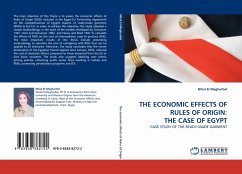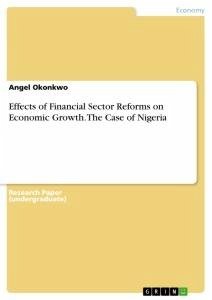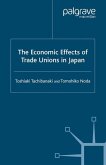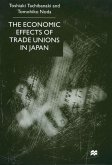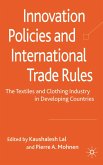The main objective of this thesis is to assess the economic effects of Rules of Origin (ROO) included in the Egypt-EU Partnership Agreement on the competitiveness of Egypt's exports of ready-made garments (RMG) to the EU. In order to achieve this objective, the study adopted a simple methodology, in the spirit of the models developed by Grossman 1981, Dixit and Grossman 1982, and Falvey and Reed 1997 to calculate the effects of ROO on the cost of intermediates used to produce RMG. The most important results of the thesis include presenting methodology to calculate the cost of complying with ROO that can be applied to all industries. Moreover, the study concludes that the recent devaluation of the Egyptian Pound applied since January 2003, reduced the cost of domestic fabrics compared to those imported from the EU or East Asian countries. The study also suggests applying new cotton pricing policies, reforming public sector firms working in textiles and RMG, promoting privatizationprograms and FDI.
Bitte wählen Sie Ihr Anliegen aus.
Rechnungen
Retourenschein anfordern
Bestellstatus
Storno

